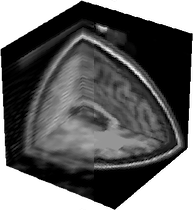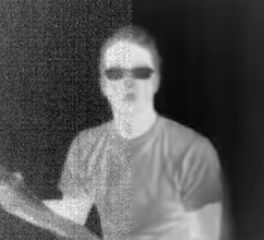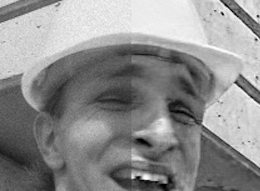Reconstruction

Iterative reconstruction of 3-D images sparsely acquired in transform domain. The acquired measurements can be real- or complex- valued as well as corrupted by noise. This settings nicely models MRI single-image volumetric acquisition.
Denoising

Attenuation of noise in standard images, 3-D volumetric images, videos, or 4-D multi-spectral data. The standard observation model also allows for non-white as well as signal-dependent noise (useful to realistically model the output of various imaging sensors).
Enhancement

Enhancement by sharpening of fine details in images and video while simultaneously attenuating the noise. Simple extensions of this algorithm can be used to reduce the effects of blocking (compression artifacts) and flickering.
Upsampling

Augmentation of spatial resolution in 2-D images as well as temporal resolution in videos. This work is based on the FRI sampling theory, which allows to approximately reconstruct specific class of signals sampled with arbitrary kernels under the presence of noise.